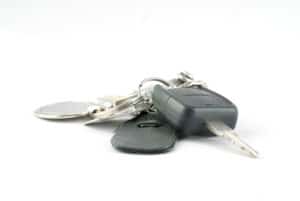Distracted Driving Awareness Month
April is Distracted Driving Awareness Month and it’s the ideal time for everyone that operates a motor vehicle to re-evaluate their driving habits. Family caregivers may need to take extra time to talk with their elderly loved ones about the dangers of distracted driving.

Home Care Services Havertown PA – Distracted Driving Awareness Month
Seniors and Distracted Driving
Studies show that there is an increased risk in driving after a person reaches the age of 65. Over time, that risk grows, increasing the odds of injury or death from a motor vehicle crash. Elderly adults are often very reluctant to give up their driving privileges because of the freedom it represents. Most seniors are not in a hurry to depend on family members or a home care services assistant to drive them around, so they fight to keep driving for as long as they can.
Family members that are monitoring their aging relative’s driving abilities may feel it is not quite time to hand over the car keys. However, they can work with their elderly loved one to prevent accidents caused by distracted driving. Seniors are just as likely to drive distracted as other age groups, including teens. During Distracted Driving Awareness Month, seniors and family members can rededicate themselves to safer driving habits.
Main Causes of Distracted Driving in Seniors
Distracted driving is simply defined as operating a motor vehicle when not devoting full attention to the task of driving and the traffic on the road. While most drivers admit to distracted driving, elderly adults face a few more challenges when it comes to keeping their focus on the road.
One of the most common contributions to distracted driving in the elderly are hearing and vision issues. If an elderly person is struggling to hear their passenger, or the radio, they are not devoting as much attention to traffic or driving. Similarly, vision problems can interfere with driving if the aging driver is straining to see a speed limit sign, turn signals on other cars and more. Family members and home care services assistants should pay attention to a decline in the senior’s hearing or vision.
Another common challenge to elderly drivers is taking their hands off the wheel for any number of reasons. Operating a cell phone is the top driving distraction and one survey revealed that 60 percent of seniors admit to driving while using a cell phone. In fact, cell phone use behind the wheel increases the risk of an accident greatly. Eating, drinking, smoking, putting glasses on or off, adjusting the radio and accessing a purse or wallet are other top contributors to distracted driving. Medication side effects can also influence concentration and focus.
Family caregivers ultimately need to make the final decision as to whether their elderly relative can continue to drive safely. If issues with age and distracted driving threaten their safety and that of other drivers and pedestrians, it may be time to investigate hiring a home care services assistant to provide transportation services.
Source: https://health.ucsd.edu/news/releases/Pages/2017-04-21-60-percent-of-seniors-use-cell-phones-while-driving.aspx
If you or an aging loved one are considering Home Care Services in Havertown PA, please contact the caring staff at True Direct Home Health Care today.
- How Home Health Providers Offer Education Amidst Physical Health Changes - March 5, 2024
- Spring Activities for Seniors - February 21, 2024
- How to Help an Older Loved One with Cataracts? - February 6, 2024
